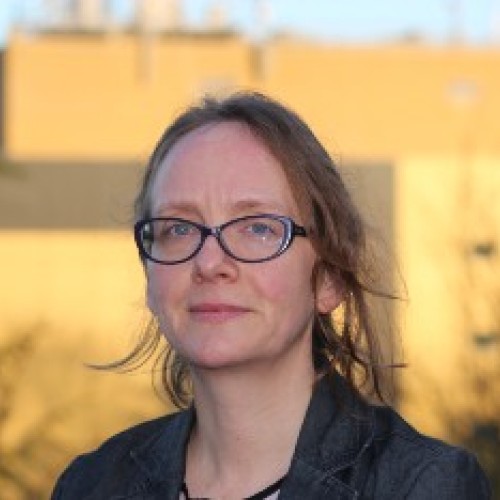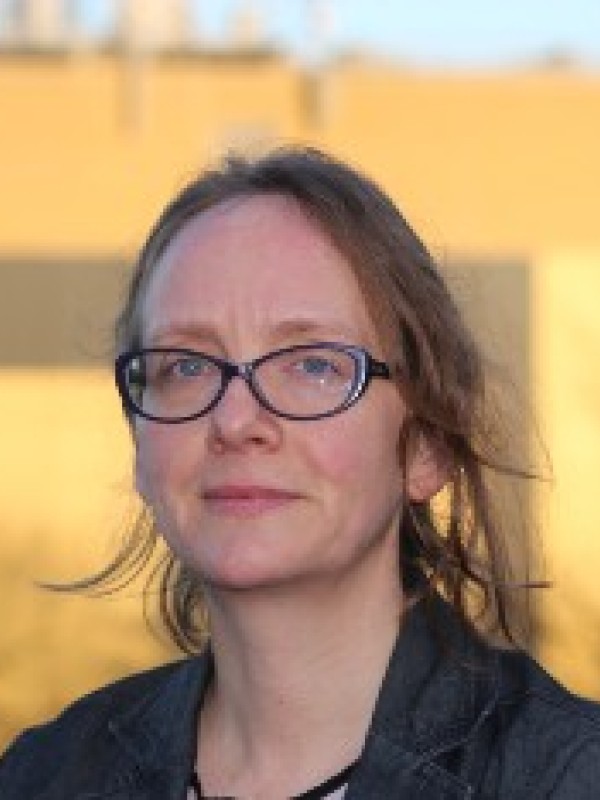
- Practitioner Doctorate in Sustainability
PhD/EngD Practitioner Doctorate in Sustainability
Our Practitioner Doctorate in Sustainability PhD/EngD programme is aimed at high-achieving researchers and graduates whose vision is to become a sustainability leader in industry. You’ll receive in-depth industry experience with a bespoke taught programme of advanced technical and specialised business modules.
4,138+ people have created a bespoke digital prospectus
Why choose this
programme?
The University of Surrey has been leading the way in environment and sustainability research for more than 30 years. The diversity of Surrey’s interests in this area of research, and the breadth of our staff’s expertise, means we can support PhD/EngD studies ranging across a full spectrum of sustainability research, including pure social science approaches, natural sciences and engineering. The majority of our research in these areas adopts multidisciplinary approaches, which we’ve pioneered for many years.
Our Practitioner Doctorate in Sustainability PhD/EngD allows you to pursue research studies at doctoral level while gaining invaluable research experience in a prestigious organisation external to the University, enabling you to apply your knowledge to real-life sustainability issues. You’ll have the unique opportunity to further your research knowledge in the academic field of sustainability and apply this to an external partner organisation.
This programme falls within our world-leading Centre for Environment and Sustainability (CES), which is internationally recognised for multidisciplinary research and teaching across all areas of sustainability. Collaborative research is carried out across the University, giving you an excellent opportunity to learn from, and contribute to, this vital domain of human development.
Statistics
100%
Of our sustainability, civil and environmental engineering research graduates are in employment or further study within 15 months of graduating (Graduate Outcomes 2025, HESA)
Top 15 for research power
The University of Surrey ranks 15th in the UK for research power for engineering (REF 2021)
Top 20 for research outputs
The University of Surrey ranks top 20 in the UK for the overall quality of our research outputs (REF 2021)
What you will study
On this programme, you will further your research knowledge in the academic field of sustainability and apply this to a real challenge, spending most of your time with an external partner organisation.
You’ll be based at the University for the first 12 weeks of the programme. In this time, you’ll undertake a series of sustainability modules and personal development workshops, which will equip you for your time in industry. You’ll then move to your industry premises where you’ll integrate into the company, making your applied research relevant to the company and potentially the wider sector.
You’ll have two academic supervisors, one from CES and one from another relevant University department or school. You’ll also have an industry supervisor, who’ll work alongside you on a day-to-day basis. The academic role of the supervisors is to guide and help train you in becoming an independent researcher whose thesis and associated publications and conference presentations make a contribution to academic and practical knowledge. You’ll collaborate closely with your supervisors, who’ll monitor your research progress through monthly and formal appraisals.
You’ll also have the opportunity to complete four specified taught modules from one of our CES masters programmes to qualify for the Institute of Environmental Management and Assessment (IEMA) professional membership at Associate level. Completion of the PhD also gives you a strong foundation to apply for the Managerial Full IEMA membership and Chartered Environmentalist level. Depending on the focus of your PhD research, it would similarly provide a strong foundation for chartered status with other professional bodies, such as those in engineering.
Each year, researchers come together for a variety of events including our annual conference, the Roland Clift Lecture, a writing retreat, the CES retreat, and various seminars and training activities.
Assessment
Your final assessment will be based on the presentation of your research in a written thesis, which will be discussed in a viva examination with at least two examiners.
You have the option of preparing your thesis as a monograph (one large volume in chapter form) or in publication format (including chapters written for publication), subject to the approval of your supervisors.
The programme is assessed by formal progress reports at six-monthly intervals, a confirmation report and the final assessment.
Location
This course is based at Stag Hill campus. Stag Hill is the University's main campus and where the majority of our courses are taught.
Research themes
The areas our research students work on include:
- Sustainable development policies and practices
- Energy, water and food nexus
- Behaviour change
- Waste systems
- Sustainable transportation
- Built environment
- Bioenergy with carbon capture and storage
- Smart local energy systems
- Social research on sustainability
- Lifestyles and resource consumption
- Resource consumption and land use
- Vertical farming
- Sustainable systems: design and modelling
- Life cycle assessment (LCA), including social LCA and life cycle costing
- Carbon and water footprinting
- Low-carbon energy supply
- Developing futures pathways
- Energy demand and efficiency
- Policy and strategy: for governments and businesses
- International development and sustainability.
See a full list of all our academic staff within the Centre for Environment and Sustainability.
Research support
The professional development of postgraduate researchers is supported by the Doctoral College, which provides training in essential skills through its Researcher Development Programme of workshops, mentoring and coaching. A dedicated postgraduate careers and employability team will help you prepare for a successful career after the completion of your PhD.
Former Practitioner Doctorate in Sustainability students have successfully begun their careers at the following organisations:
- Senior Associate, The Carbon Trust
- Environment Sustainability Advisor, Wates Group
- Resource Efficiency Analyst - PlayStation, Sony
- ESG Manager, Welcome Break
- Group Sustainability Manager, Keller
- Senior Strategic Ecologist, LUC
- Head of Consumption, WWF.
UK qualifications
Applicants are expected to hold a first or upper second-class (2:1) UK degree in a relevant discipline (or equivalent overseas qualification), or a lower-second (2:2) UK degree plus a good UK masters degree - distinction normally required (or equivalent overseas qualification).
English language requirements
IELTS Academic: 6.5 or above (or equivalent) with 6.0 in each individual component.
These are the English language qualifications and levels that we can accept.
If you do not currently meet the level required for your programme, we offer intensive pre-sessional English language courses, designed to take you to the level of English ability and skill required for your studies here.
Selection process
Selection is based on applicants:
- Meeting the expected entry requirements and providing all relevant documents including a satisfactory research proposal
- Being shortlisted through the application screening process
- Completing a successful interview
- Providing suitable references.
Due to the challenging nature of the research projects and the fact that doctoral practitioners will work at the partner organisation’s premises, it is likely that candidates with some work experience (e.g., at least a year of professional training that is assessed and integrated into the degree programme) will have an advantage in the selection process.
Fees per year
Explore UKCISA's website for more information if you are unsure whether you are a UK or overseas student. View the list of fees for all postgraduate research courses.
* Please note: any start date other than September will attract a pro-rata fee for that year of entry (75 per cent for January, 50 per cent for April and 25 per cent for July).
September 2026 - Full-time
- UK
- £5,238
- Overseas
- £28,300
September 2026 - Part-time
- UK
- £2,619
- Overseas
- £14,200
- Annual fees will increase by 4% for each year of study, rounded up to the nearest £100 (subject to legal requirements).
Additional costs
There are additional costs that you can expect to incur when studying at Surrey.
Funding
A Postgraduate Doctoral Loan can help with course fees and living costs while you study a postgraduate doctoral course.
How to apply
In order to be on this research course, you will first have to apply for a relevant studentship, and then will be enrolled onto this course following a successful studentship application.
All studentship opportunities are subject to industry funding. Positions will therefore be advertised on the studentships site, FindAPhD, jobs.ac.uk, and via Twitter, once a project has been agreed between the programme and the relevant company concerned.
All studentships start in September and there are no other starting points during the year. If you have any questions, then please email the team at pds@surrey.ac.uk.
About the University of Surrey
Need more information?
Contact our Admissions team or talk to a current University of Surrey student online.
Code of practice for research degrees
Surrey’s postgraduate research code of practice sets out the University's policy and procedural framework relating to research degrees. The code defines a set of standard procedures and specific responsibilities covering the academic supervision, administration and assessment of research degrees for all faculties within the University.
Download the code of practice for postgraduate research admissions (PDF).
Terms and conditions
When you accept an offer to study at the University of Surrey, you are agreeing to follow our policies and procedures, student regulations, and terms and conditions.
We provide these terms and conditions at the offer stage and are shown again at registration. You will be asked to accept these terms and conditions when you accept the offer made to you.
View our generic registration terms and conditions (PDF) for the 2025/26 academic year, as a guide on what to expect.
Disclaimer
This online prospectus has been published in advance of the academic year to which it applies.
Whilst we have done everything possible to ensure this information is accurate, some changes may happen between publishing and the start of the course.
It is important to check this website for any updates before you apply for a course with us. Read our full disclaimer.






